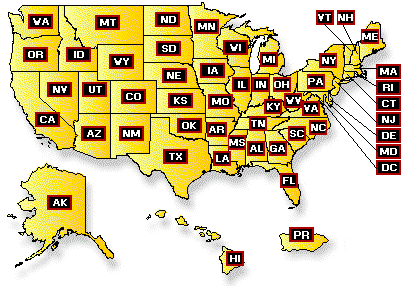
The information that you collect about employees is sensitive and few people should be allowed to see it, often not even the employee. Just as there is no federal law about keeping a personnel file, there are no federal laws about who gets access to it. A number of states, however, have passed laws that limit or otherwise regulate the employee's access to the personnel file.
Must you allow employees access? Despite technical ownership issues, a personnel file contains information about an employee that could affect his or her future. That employee frequently wants to know the information contained in the file, whether the information is correct, and to whom the information will be shown. We recommend that, whether or not your business is located in a jurisdiction requiring employee access, you allow reasonable access to personnel files as part of a policy of treating employees with fundamental fairness.
Which restrictions can you place on access? The answer, in several states, is governed by state law, but you may want to consider the following. You can:
Here's a chart that summarizes state laws regulating access to personnel files. Just click on your state on the map below for a summary of which laws, if any, your state has that regulate access to personnel files.

Can you limit the information employees can see? State law may permit your company to limit the information to which the employee must be given access. You may, however, provide access to more information than the state requires. Typically, employees must be given access to information used by you to determine the employees' qualifications for employment, promotion, and additional compensation, as well as information about discipline and terminations.
What types of information may be withheld? Some states permit you to withhold certain types of information from employee access, including certain medical records and information on other employees. Other states do not address the issue, so you may handle it as you think will best serve your business's interest.
Can the employee copy the file? Generally, the employee may either make a copy or request a copy of all or part of the information found in the employee's personnel file. In most states, you may charge the employee for the cost of making the copies. You may also specify whether the employee may make the copies or whether he or she may only request a copy from you.
What if the employee disagrees with information in the file? A few states' laws address the issue of the procedure you should follow. Whatever state your company is in, you should establish a policy to follow in such an event.
Typically, when an employee disagrees with information found in the employee's personnel file, removal or correction of the information may be agreed upon by you and the employee. If you cannot agree upon the removal or correction, the employee should be permitted to submit a written statement explaining his or her position. The statement becomes a permanent part of the employee's personnel file and must accompany any transmittal or disclosure from that file to anyone else who's allowed to see it.
Who else can see the file? Only other supervisors or managers — if there are any — in the business may be allowed access to files on a need-to-know basis only.
If a lawsuit is brought against your business, you have the option of protecting the privacy interests of other employees by refusing to turn over personnel file information requested in the suit until forced by a subpoena. Even then, you should insist that the order be as narrow as possible and that any information sought should relate directly to the allegations in the suit.
If the government audits you for certain recordkeeping requirements, and the
records are in personnel files, then they get the whole file, unless you take
out the pieces they want individually.